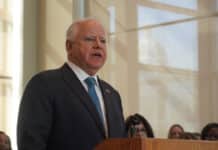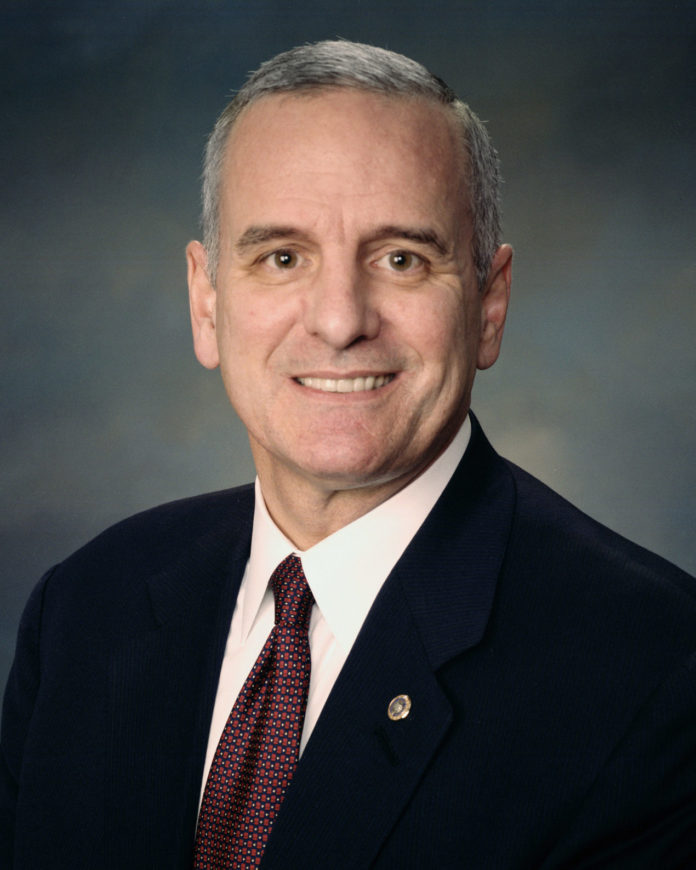ST. PAUL, Minn. — The Minnesota reinsurance bill passed by Republican-held chambers will go into effect as law, but without the blessing of Democratic Gov. Mark Dayton.
In a letter sent to House Speaker Kurt Daudt (R-Crown), Dayton commends leadership for working with his office on the reinsurance bill and for moving it through both chambers quickly.
“I stated publicly that I would not sign a Reinsurance bill until I received written replies to my questions from the insurance executives,” Dayton said, “I have not received the decency of a written reply from a single one of those CEOs, much less their answers to my questions.”
Specifically addressing two major issues. Dayton is concerned with the source of funding the $542 million reinsurance bill, stating the money should not come out of the state coffers, but be funded from the creation of a new tax on the industry.
“The General Fund and Health Care Access Fund dollars should be statewide priorities like schools, early childhood education and health care for low-income Minnesotans,” Dayton said.
Dayton also doesn’t believe that insurance companies get to dictate how the state distributes its money stating, “The bill not only provides insurers with up to $542 million taxpayers’ dollars, as direct subsidies to their businesses, but also allows them both to dictate where that money shall come from and to evade any financial responsibility for their own aid program.”
Dayton also noted the lack of his proposed buy-in option for MinnesotaCare in the bill. according to Dayton, the buy-in, “would have added some much-needed competition into the Individual Market. I could have offered many Minnesotans more comprehensive health care coverage, through more accessible provider networks, at lower insurance costs…”
Dayton expressed his concern for Minnesotans as the CEO’s of insurance companies did not respond to his letter asking for confirmation that these companies would continue to offer “products statewide in the individual market” and “lower premiums that will make insurance coverage more affordable.”
Dayton concluded his letter by stating he agrees with lawmakers that the bill is needed, but he will not sign the bill. The bill, therefore, becomes law by his refusal to respond within the mandated three-day period.
The Minnesota Senate Republican Caucus did not respond in time for publication.
The bill will become law at midnight on April 3, 2017.


















